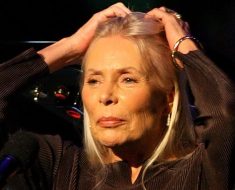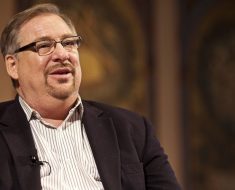
Mahatma Gandhi net worth is $1,000. Also know about Mahatma Gandhi bio, salary, height, age weight, relationship and more …
Mahatma Gandhi Wiki Biography
Mohandas Karamchand Gandhi was born on the 2nd October 1869, in Porbandar, Gujarat India, and and was an Indian lawyer, politician and spiritual leader. He was a foreground figure in India’s independence efforts from the British Empire. Gandhi died in 1948.
How much was the net worth of Mahatma Gandhi? It has been estimated by authoritative sources that the outright size of his wealth was just $1,000, converted to the present day.
To begin with, the boy was raised in the current state of Gujarat. After matriculating from high school, he studied law in London (1888-1891), where he also became active as a member of the London Vegetarian Society. In 1893, he went to South Africa to work as a legal consultant with an Indian firm, where faced with racial discrimination against Indian immigrants, he began fighting for the rights of his compatriots, and soon became a well-known publicist and politician. He founded the Natal Indian Congress (1894), formulated and adapted a method of fighting satjagrahos, the essence of which is the refusal to obey the wrong order through non-violence, non-cooperation.
Gandhi understood the political struggle as an endeavour of truth, perceived in a religious sense. Gandhi became acquainted with Christianity and Islam, as well as came to the conclusion that all religions are correct, but in practice they are misinterpreted. His worldview was especially influenced by the Bhagavad Gita’s postulates about the need to abandon material goods, to calmly carry out their duties, regardless of their emotions and external circumstances. In pursuit of his social utopias, Gandhi established two farmers’ colonies, which became prototypes of later ashrams. Gandhi returned to India in 1914, being a prominent leader. However, during World War I, he was not directly involved in politics – on the contrary, he helped recruit soldiers to the British Indian Army. In 1919, Gandis issued a Satjagrah that caused a wave of resistance to colonial rule in many provinces of India, following which he was called Mahatma (from the Sanskrit – Great Soul). By Gandhi’s efforts, the Indian National Congress (INK) was reorganized into a mass party, and organised a widely used boycott of government institutions, schools and English goods. Gandhi said that the colonizers would not use force before the non-violent movement, and eventually they would have to withdraw from India. Due to an incident in which several policemen were killed at the beginning of 1922, Gandhi stopped the movement. For inciting opposition to British rule, Gandhi was sentenced to 6 years in prison, but released in 1924.
Returning to active politics at the end of 1928, on his initiative, the INK adopted a resolution demanding that India would be given a dominant position. In September 1932, while again in prison, Gandhi launched a hunger strike to death, demanding an improvement in the position of the lowest casts. In 1934, he abandoned the post of Head of the INK, retired from the party, and engaged in the implementation of his constructive program: rural education and the development of traditional crafts. Gandhi criticized contemporary technological civilization, and imagined the future independent India as a country of free rural communities. With the start of World War II, Gandhi and INK’s leaders were ready to support Britain, but did not receive clear promises of independence after the war, and in 1942 they started the Quit India movement – all the directors were immediately imprisoned.
In the aftermath of the war with British and Muslim leaders, Gandhi did not succeed in overcoming the waves of Muslim and Hindi rejection, to avoid dividing the country, and did not participate in any government institutions. His subsequent hunger strike helped stop the massive communal riots in Kolkata in September 1947 and in Delhi in January 1948, but at the same time caused dissatisfaction among Hindu fanatics. One of them, Nathuram Godse, shot dead Gandhi while he was going to prayers, on the 30th January 1948 in New Delhi, India. India had achieved independence, with a separate Pakistan in 1947.
To conclude, Gandi was one of the most prominent and influential leaders of the 20th century.
Finally, in the personal life of Gandhi, he married Kasturba Gandhi at the age of 13. They had 4 children – Gandhi decided to live only a spiritual life when he was 38 years old.
Wikipedia $1 Thousand 102 lbs (46.2664 kg) 1869 1869-1948 (1968) 5 ft 4 in (1.64 m) Alfred High School Authors Bapu Bhagavad Gita Bhagavad-Gita (1946) Devdas Gandhi Gandhi Gandhi Mahatma Gandhiji Harilal Gandhi High school in Ahmedabad Hind Swaraj or Indian Home Rule (1909) India Karamchand Gandhi Kasturba Gandhi Kasturba Gandhi (m. 1883–1944) lawyer Life of Mahatma Gandhi (1973) Lo London M. Gandhi Mahatma Mahatma Gandhi Mahatma Gandhi Net Worth Mahatma Gandhi- 20th Century Prophet (1953) Mahatma: Life of Gandhi Manilal Gandhi Mohandas Ghandi Mohandas K. Gandhi Mohandas Karamchand Gandhi Nathuram Godse ndon Mahatma Gandhi Talks (1931) October 2 Philosopher Politician Porbandar Putlibai Gandhi Ramdas Gandhi Samaldas Arts College Samaldas College in Bhavnagar State Satjagrah Satyagraha in South Africa (1928) The Father of the (Indian) Nation The Story of My Experiments with Truth (1927) UCL Faculty of Laws Writer
Mahatma Gandhi Quick Info
| Net Worth | $1,000 |
| Date Of Birth | 2 October 1869 Porbandar, Porbandar State, British India |
| Died | 30 January 1948 (aged 78) New Delhi, Delhi, Dominion of India (present-day India) |
| Height | 5 ft 4 in (1.64 m) |
| Weight | 102 lbs (46.2664 kg) |
| Profession | Lawyer, Politician, Philosopher, Writer, Founder of Natal Indian Congress (1894) |
| Education | High school in Ahmedabad, Samaldas College in Bhavnagar State, UCL Faculty of Laws, London |
| Nationality | Indian |
| Spouse | Kasturba Gandhi (m. 1883–1944) |
| Children | Harilal Gandhi, Manilal Gandhi, Devdas Gandhi, Ramdas Gandhi |
| Parents | Karamchand Gandhi, Putlibai Gandhi |
| Nicknames | Mohandas Karamchand Gandhi , Gandhi , Gandhiji , Bapu , The Father of the (Indian) Nation , Mohandas K. Gandhi , Mohandas Ghandi , M. Gandhi , Mahatma , Gandhi Mahatma |
| Nominations | Father of the Nation |
| Movies | Mahatma Gandhi Talks (1931), Life of Mahatma Gandhi (1973), Mahatma: Life of Gandhi, 1869-1948 (1968), Mahatma Gandhi- 20th Century Prophet (1953) |




